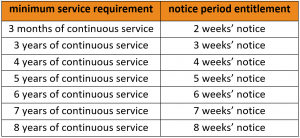Blog
10 Major Changes for Federally Regulated Employers
Most workplaces in Ontario are provincially regulated and subject to provincial employment laws. However, there are a significant number of workplaces in this country that are federally regulated and governed by the Canada Labour Code. In fact, there are currently over 18,000 employers and 900,000 employees that are subject to federal regulation. These federal workplaces impact us all, and include banks, airlines, broadcasting companies, federal crown corporations and interprovincial transportation companies.
This month, broad and sweeping changes are being made to the Canada Labour Code. Many of these changes bring the federal employment laws in line with current provincial standards, but they do represent a significant shift for these workplaces. Federal employers should take note of these changes that came into force September 1, 2019.
The 10 most notable changes are:
- Rest periods: Employees are entitled to a 30 minute unpaid break for every 5 consecutive hours of work, and at least 8 hours off between shifts. Employees are also entitled to unpaid breaks for medical reasons and nursing or expressing breast milk.
- Leaves: The following leaves have been added or changed:
- Personal leave – Employees are entitled to 5 days of personal emergency leave, the first 3 of which are paid. This leave can be taken for a broad variety of reasons, including an employee’s own illness, or the health or education needs of a family member.
- Medical leave – This leave (formerly known as sick leave) has been expanded to encompass medical appointments and organ donation. The leave can be up to 17 weeks and after 3 days of absence a medical note can be requested.
- Victims of family violence leave – Up to 10 days per year can be taken by victims or parents of children that are victims of family violence. The first 5 of these days are paid.
- Court or jury duty leave – There is no limitation on the duration of an unpaid leave to attend court as a witness or jury member.
- Leave for traditional aboriginal practices – Employees are entitled to up to 5 unpaid days per year to attend traditional practices.
- Extended bereavement leave – Employees are entitled to an additional 2 unpaid bereavement days on top of the existing 3 paid days.
- Service requirement: Continuous service requirements for holiday pay, maternity and parental leave, critical illness leave and disappearance leave have been removed.
- Flexible work arrangement: Employees with at least 6 months of service may formally request a change in working conditions, including a change to their schedule or work location. Employers must respond in writing to grant or deny the request.
- Schedule Changes: Employers must give employees at least 24 hours advance written notice of a shift change (unless the change could not be reasonably foreseen). Employers are also required to give 96 hours advance written notice before implementing a schedule. Employees have the right to refuse any shift assigned within 96 hours.
- Continuity of Employment: If a business or part of a business is transferred by sale, merger or any other manner, the employment of its employees will be deemed to be continuous. This will apply even if the transfer is from a provincially regulated employer to a federally regulated employer.
- Refusing overtime: Employees have the right to refuse overtime to carry out family responsibilities, subject to certain exceptions.
- Lieu time: Employers and employees can agree in writing to grant 1.5 hours of time off for every hour of overtime worked. The time off must be used within 3 months, unless otherwise agreed, or else the overtime must be paid out.
- Vacation: Minimum vacation entitlements increase to 3 weeks (or 6% vacation pay) after 5 years of service and 4 weeks (or 8% vacation pay) after 10 years of service.
- Termination of employment: Notice of termination requirements have increased from 2 weeks of notice to the following graduated scale:

If you have any questions about these changes, please do not hesitate to reach out to us.

